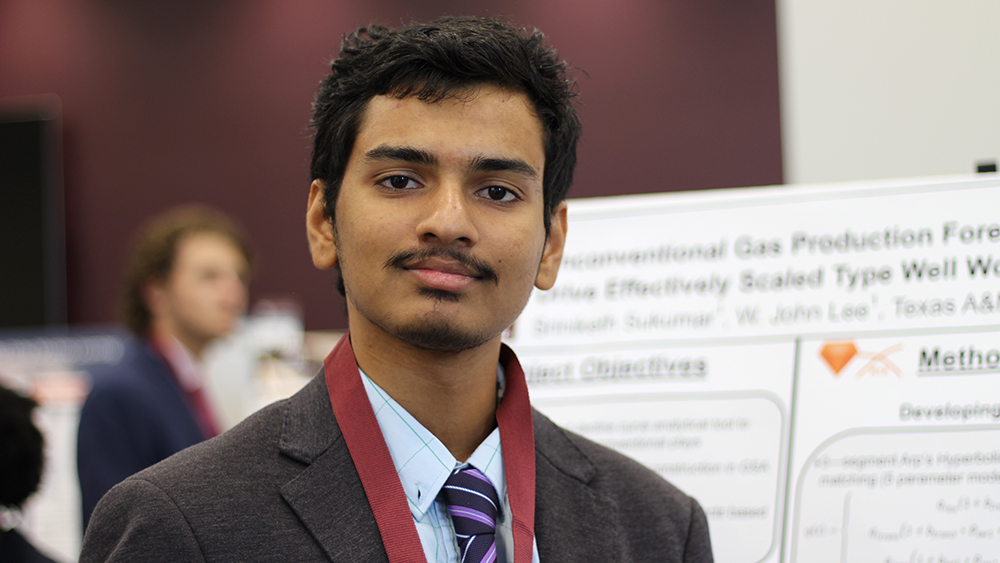
This summer, petroleum engineering student Sriniketh Sukumar ’21 took part in the College of Engineering’s Undergraduate Summer Research Grant (USRG) program, which funds an engineering student to participate in a project with a faculty mentor of the student’s choice. Sukumar took time to share his thoughts on his mentor, Dr. John Lee, his project, and his academic pursuits.
Q: Have you learned a lot from participating in the USRG?
A: Absolutely! Dr. Lee was very patient and helpful in explaining concepts and guiding the direction in which my project would progress. I really benefited from his clarity of thought, which helped my learning process. He also encouraged me to be an independent thinker and bring all of the ideas I could to the table.
Participating in the USRG program has been an excellent experience, and I highly recommend it to any other students interested in pursuing research.
Q: What does your USRG research entail?
A: Our project features the development of multi-segmented decline curve models as a more efficient means of accounting for all of the flow regimes that are typically observed over the production life of an unconventional resource play. Our method is validated with history matches of both simulated and real field results, which culminate in the development of a new type well workflow based on effective scaling principles and rooted in relevant fluid flow principles. Our workflow also models project economics and uncertainty.
Our methodology creates more accurate type wells for the production forecasting of unconventional gas resources, which are the hallmark of important legal activities like tax auditing, reserves estimation and making the pivotal “drill or no drill” project decision, all of which carry immense weight to the value of an operating company.
The most exciting part is its industry applicability. If successful, our results offer practical improvements to the reserves estimation and business development planning process that benefit the practicing reservoir engineer.
Q: Did you do research before USRG?
A: Yes, since my freshman year. My most notable experience prior to the USRG program was with Dr. Weijermars during my sophomore year. Our work culminated in the recent publication of my first research paper.
As engineering students at Texas A&M, we are granted some rare and valuable opportunities, both within and outside the sphere of research. I hope to continue to make the most out of them for the remainder of my time here.
Q: Why come to Texas A&M University?
A: Petroleum engineering at Texas A&M offered opportunities I could find nowhere else in the world. Namely, the opportunity to learn from some of the most accomplished professors in the field, and take part in fascinating research and a broad spectrum of elective coursework.
I was especially interested in the Petroleum Ventures Program (PVP), which offers excellent breadth in the areas of reservoir management and finance, in conjunction with the Mays Business School. I was recently accepted into the PVP and I’m excited to start this fall!
I was also eager to learn the ropes of the oil and gas industry in a location close to Houston, the world’s energy capital, and near various unconventional resource plays, which are an exciting area of emerging prospects in oil and gas.
Another feature that separates Texas A&M from other schools is the scholarship opportunities. I was able to obtain one even as an international student!
Q: Why study petroleum engineering?
A: While finishing high school I was convinced I had an aptitude for engineering and wanted to pursue this exciting discipline. I found petroleum to be an interesting choice as it integrated a broad variety of fields in engineering, geosciences, and even economics and finance. I found it to be at the interface of the technical and business world, which is especially important since oil and gas is responsible in no small part for meeting the world’s growing energy needs.
Q: What do you hope to do when you graduate?
A: I would like to work in industry for a few years before pursuing graduate school. This would allow my professional interests to mature with real-world industry experience before pursuing further technical specialization in graduate school, which would shape my career long term.